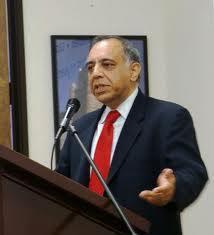Urban transportation, labour markets, and access to economic opportunity: Evidence from Lahore’s Bus Rapid Transit System
The Lahore Bus Rapid Transit System (conventionally, Lahore Metrobus) has dramatically altered the public transport landscape of Lahore, providing subsidised urban mobility to over 140,000 people along Ferozpur Road of Lahore each day.
The purpose of this project is to analyze the impact of the Lahore Metrobus project on employment and human capital investment. By enhancing the understanding of the relationship between urban transportation, human capital acquisition and labour market outcomes, our proposed research will shed light on how transport infrastructure investments can improve the growth potential of cities in developing countries. This study will quantify the causal impact of a reduction in transit cost and time due to an investment in public transport infrastructure on labour market outcomes and human capital acquisition. Our study identifies a more comparable control group than used in most previous literature: areas which were slated for potential routes but have not yet received them. Our proposed research will use a quasi-experimental difference-in-difference approach, in which the treatment group will be areas within a short distance of Metrobus stations, while the control group will be identified on the basis of both of those lines which have been planned - but have not yet been built - and the ones cancelled (initially selected). Because these areas have been selected for potential or future routes, they are likely to be comparable overall to the areas selected for the first Metrobus route. This will provide a major advance over the existing literature on urban transport infrastructure. We will use the quasi-experimental approach in conjunction with a structural model to estimate meaningful economic parameters that can be extrapolated beyond the specific case of the Lahore Metrobus. We will model the Metrobus as reducing the time and money cost of transport, allowing for a higher quality job match to be sustainable in equilibrium. Since the Metrobus opened in May 2013, the survey in autumn 2015 is expected to capture medium-term effects.
In addition to this causal impact, analysis of the descriptive data will also be of use for policymakers, giving useful information on the patterns of use of the system. Answers to these questions will provide evidence-based insights for policymaking in Pakistan's high priority policy area of urban transportation infrastructure.






